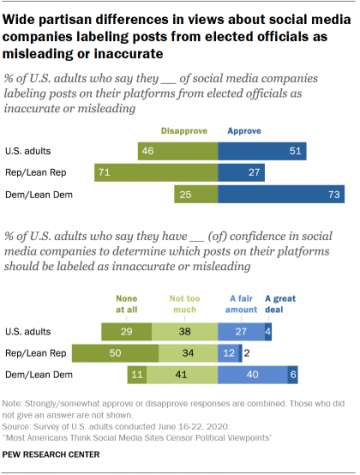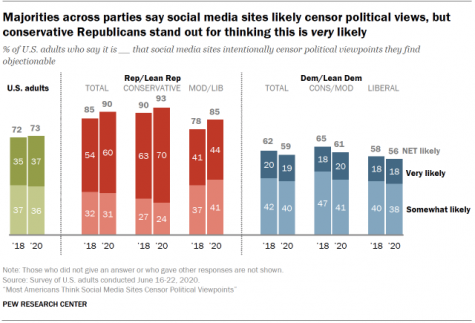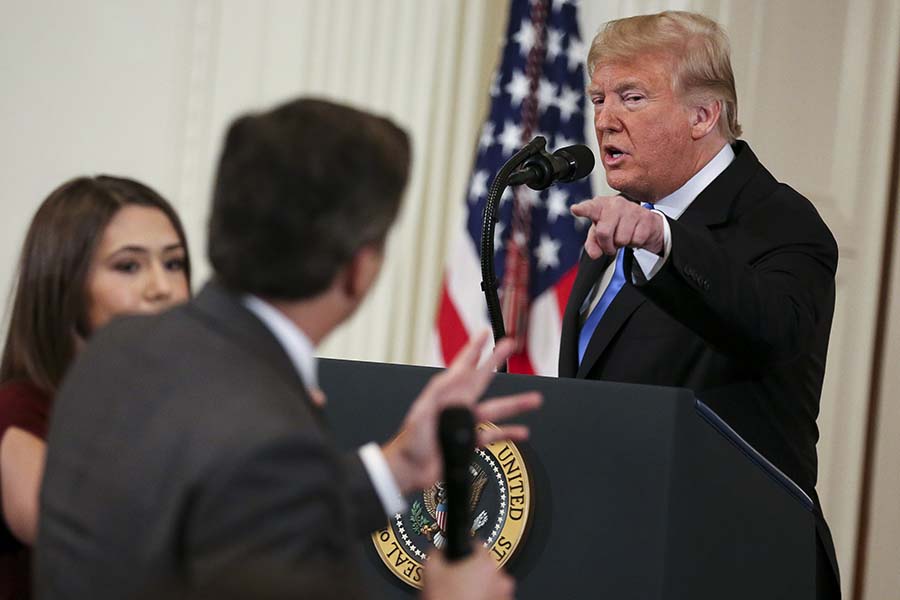Uncensor the Media
Social media censorship is a violation of a social media user’s right to self expression of opinions.
PHOTO | TNS
A White House staff member, left, tries to take away the microphone from CNN White House correspondent Jim Acosta during an exchange with President Donald Trump on Wednesday, Nov. 7, 2018, in Washington, D.C. (Oliver Contreras/Sipa USA/TNS)
In today’s modern society, content on social media often tends to become extremely politicized, frequently resulting in extremist posts and remarks being made from both sides of the political spectrum. Unfortunately, this has become a problem with social media that doesn’t have the clearest answer. However, it seems as if many social media platforms have turned to using censorship in hopes of preventing their feeds from becoming too toxic. Censorship is the suppression of words, images or ideas that are “offensive,” according to the American Civil Liberties Union. This raises a huge debate on if this is a justified practice, specifically in relation to the freedom of speech under the First Amendment.

In general, it is important for social media platforms to have a free speech policy. This is one of the many benefits of social media usage for our generations: it allows people across the globe to express their own thoughts and opinions as well as gain new perspectives from the posts of other users. When talking about censorship in this nature, it mostly is referring to the political posts and content that could be considered controversial. Even if these posts cause bickering between users, it’s important for social media platforms to remain in a state of content neutrality. Everyone who joins social media has the right to free speech and no one should have to be silent about their views just because they may receive backlash. One of the possible cons that comes with posting your views online is receiving negative responses, but this is inevitable and just one of the risks that comes with voicing your opinions online.
With this being said, it’s crucial to note that there is a significant difference between petty or disrespectful comments and hateful or threatening language. Content should only be censored in the case that it would have the possibility to cause direct harm to a certain person or societal group. If this is the case, ultimately the best solution would most likely be to have the content reviewed by the social media platform moderators and they can make a decision on if that user and their posts is posing a threat on their platform.
Some may argue that a platform without censorship would create an unsafe online environment that would create discomfort for certain groups. However, this is not a problem that should be fixed with censorship. If anything, censorship would only make this worse. There’s a clear line between content that is threatening and content that may be hard for some users to read and/or see. If kids are on these social media platforms, parents should be monitoring the content their child sees if they see fit until the child is old enough to be on these platforms independently. Adults on social media are perfectly capable of keeping their content respectful and their mannerisms civil when interacting with other users.

There’s never going to be a way to keep the internet and social media platforms 100% a safe and respectful place. In current times, even with encouragement to have mutual respect online, it’s impossible to guarantee that all social media users would only post content with integrity and no harm intent. But general censorship is not the solution to this problem, it only makes it worse.



